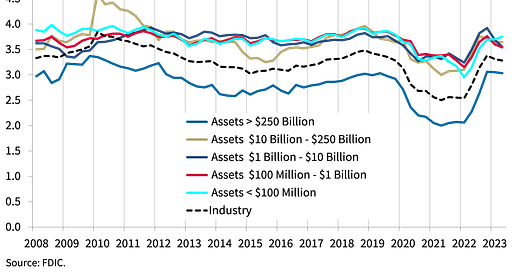What Happened to the OCC's Chief Fintech Officer?
CFPB Takes Aim at Apple & Google's Control Over Mobile Payments, Q2 Banking Profile Highlights, FT Partners' August Summary, Fed's Fintech Conference
Get the latest developments on this story in a post that published November 24th, 2023, here: OCC Ex-Fintech Chief's Fake Resume, DUIs Raise Fresh Questions



